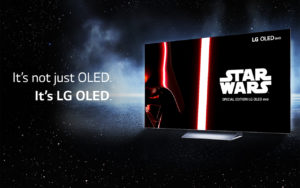Its basically a browser OS. Think of it as a Suped up Firefox bowers that allows you to run apps in tabs. Which mostly are Google apps apart from Facebook.
Via Gizmodo
• It’s basically just a browser: meaning that it’ll be based around preexisting web services like Gmail, Google Docs, and so on. There are going to be no conventional applications, just web applications—nothing gets installed, updated, or whatever. Seriously.
• It only runs web apps: It’s going to integrate web apps into the operating system deeper than we’ve ever seen before, meaning that a) they’ll seem more like native apps than web apps and b) they’ll be able to tap into local resources more than a typical web app in Firefox, for example. They’re web apps in name, but they’ll have native powers.
• How, exactly?: With HTML 5. This is the next version of HTML, which gives the browser more access to local resources like location info, offline storage—the kinds of things you’d normally associate with native apps. More on that here.
• Chrome is Chrome: The user’s experience with Chrome OS will basically be synonymous with their experience on Chrome Browser. Technically speaking, Chrome OS is a Linux-based OS, but you won’t be installing Linux binaries like you might on Ubuntu or some other Linux distribution. Any “apps” you have will be used within the browser. Chrome OS is effectively a new version of Chrome, that you can’t leave. There are a few reasons Google’s pushing this, which we’ll get to in a bit.
• And as you’ve probably guessed, it’s super-light. It starts up in a matter of seconds, and boot straight into the browser.
• It won’t support hard drives, just solid state storage. I mean, hard drives are dying, sure, but this is pretty bold. Hardware support sounds like it’ll be pretty slim, because:
• You’ll have to buy a Chrome OS device: You might be able to hack this thing onto your current machine, but you won’t just be able to install it to replace Windows, or opt for it on your next laptop, for example. You’ll have to buy hardware that Google approved and consulted on.
• For now, it’s for netbooks. It’s not intended for desktops, to the point that Google is saying that the first generation of Chrome hardware will be secondary machines.
Some video about the OS




